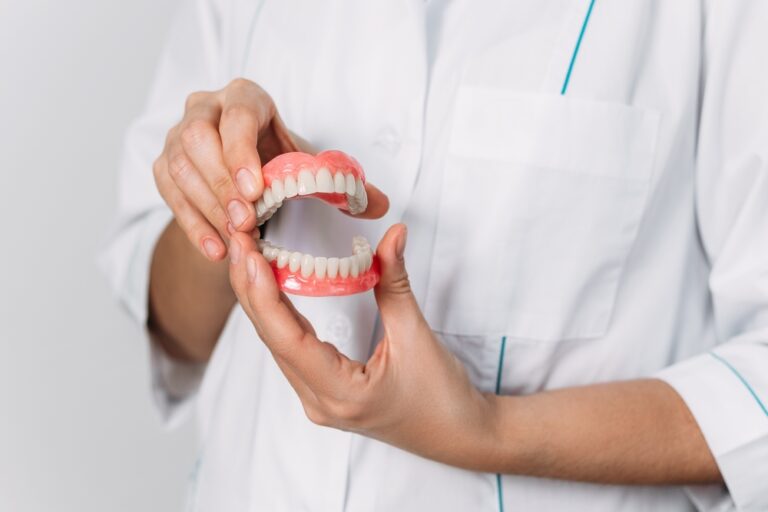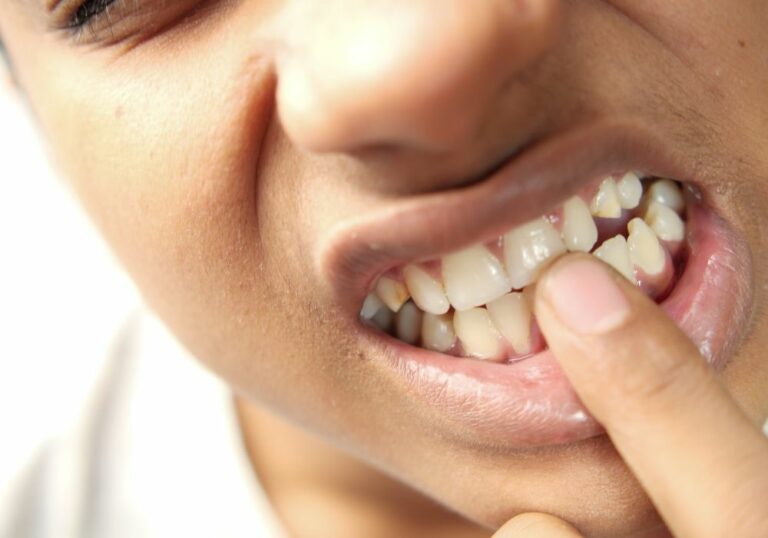Can weak gums get stronger? Weak gums are a common dental problem that can lead to tooth loss and other oral health issues if left untreated. While it may seem like weak gums are a permanent condition, there are steps you can take to strengthen them and improve your overall oral health.
Understanding Weak Gums: Gums are the soft tissue that surrounds and supports your teeth. Weak gums occur when the gums become inflamed, infected, or damaged, causing them to recede or pull away from the teeth. This can lead to tooth sensitivity, bleeding gums, and even tooth loss.
Causes of Weak Gums: Poor oral hygiene is the most common cause of weak gums. Other factors that can contribute to weak gums include genetics, smoking, hormonal changes, and certain medications. If left untreated, weak gums can progress to gum disease, which is a serious condition that requires professional treatment.
Key Takeaways
- Weak gums can be strengthened with proper oral hygiene and professional dental care.
- Poor oral hygiene is the most common cause of weak gums.
- Regular dental checkups and cleanings can help prevent and treat weak gums.
Understanding Weak Gums
Gum disease is a common oral health problem that affects many people worldwide. It is caused by the buildup of plaque and bacteria on the teeth and gums, leading to inflammation and infection. One of the signs of gum disease is weak gums, which can be a serious problem if left untreated.
Weak gums can be caused by a variety of factors, including poor oral hygiene, genetics, hormonal changes, and certain medical conditions. Some of the common symptoms of weak gums include bleeding, swelling, and tenderness in the gums, as well as bad breath and loose teeth.
If you notice any of these symptoms, it is important to seek treatment as soon as possible to prevent further damage to your gums and teeth. Your dentist can recommend a variety of treatments, including deep cleaning, antibiotics, and surgery, depending on the severity of your condition.
In addition to seeking professional treatment, there are several things you can do to strengthen your gums and improve your overall oral health. These include:
- Brushing your teeth twice a day with fluoride toothpaste
- Flossing daily to remove plaque and food particles from between your teeth and gums
- Using an antiseptic mouthwash to kill bacteria and freshen your breath
- Eating a healthy diet that is rich in vitamins and minerals, especially calcium and vitamin C
- Quitting smoking, which can weaken your gums and increase your risk of gum disease and other oral health problems
By taking these steps, you can help to strengthen your gums and prevent gum disease from causing further damage to your oral health. Remember to visit your dentist regularly for checkups and cleanings, and to report any changes or problems with your gums or teeth as soon as possible.
Causes of Weak Gums

Gum health is crucial for maintaining overall oral health. Weak gums can lead to various dental problems, including tooth loss. Here are some of the common causes of weak gums:
Poor Oral Hygiene
Poor oral hygiene is one of the leading causes of weak gums. When you don’t brush or floss your teeth regularly, plaque builds up on your teeth, leading to gum inflammation and eventually gum disease. This can cause your gums to weaken over time, making them more susceptible to damage and infection.
Gum Diseases
Gum diseases such as gingivitis and periodontitis can also cause weak gums. Gingivitis is a mild form of gum disease that causes inflammation of the gums. If left untreated, it can progress to periodontitis, which can cause the gums to recede and weaken.
Nutritional Deficiencies
Nutritional deficiencies, especially in vitamin C and vitamin D, can also cause weak gums. Vitamin C is essential for collagen production, which is crucial for maintaining healthy gums. Vitamin D is necessary for calcium absorption, which is essential for strong bones, including the jawbone that supports the teeth.
In conclusion, weak gums can result from poor oral hygiene, gum diseases, and nutritional deficiencies. By maintaining good oral hygiene and a healthy diet, you can prevent weak gums and maintain optimal oral health.
Symptoms of Weak Gums
Weak gums can be a sign of gum disease, which is a common problem that affects many people around the world. Here are some of the symptoms of weak gums that you should look out for:
- Bleeding gums: If your gums bleed when you brush or floss your teeth, it could be a sign of weak gums. Bleeding gums are often a sign of gingivitis, which is an early stage of gum disease.
- Red and swollen gums: If your gums are red and swollen, it could be a sign of weak gums. Inflammation of the gums is a common symptom of gum disease.
- Receding gums: If your gums are receding, or pulling away from your teeth, it could be a sign of weak gums. Receding gums can make your teeth look longer and can expose the roots of your teeth, which can be painful.
- Loose teeth: If your teeth are loose, it could be a sign of weak gums. When the gums are weak, they are not able to hold the teeth in place as well, which can cause them to become loose.
If you are experiencing any of these symptoms, it is important to see your dentist as soon as possible. Your dentist can help you determine the cause of your weak gums and recommend a treatment plan to help strengthen them.
Can Weak Gums Get Stronger?

Weak gums can be a problem that many people face. The good news is that weak gums can often be strengthened through proper oral care and treatment. Here are some ways to help improve the strength and health of your gums:
- Practice good oral hygiene: Brush your teeth twice a day and floss daily to remove plaque and bacteria that can lead to gum disease.
- Use a mouthwash: A mouthwash can help kill bacteria and freshen breath, but be sure to choose one that is alcohol-free to avoid drying out your mouth.
- Eat a healthy diet: A diet rich in fruits and vegetables can provide essential vitamins and minerals that can help strengthen your gums.
- Avoid tobacco: Smoking or using other tobacco products can weaken your gums and increase your risk of gum disease.
- Get regular dental checkups: Regular dental checkups can help catch gum problems early and prevent them from getting worse.
It’s important to note that while these steps can help improve the strength of your gums, they may not be enough for everyone. In some cases, additional treatment may be necessary. If you have concerns about the health of your gums, be sure to talk to your dentist.
Methods to Strengthen Weak Gums
Proper Oral Hygiene
Maintaining proper oral hygiene is essential for healthy gums. Brush your teeth at least twice a day, using fluoride toothpaste and a soft-bristled toothbrush. Floss daily to remove plaque and food particles from between your teeth. Consider using an electric toothbrush, which can be more effective at removing plaque than a manual toothbrush.
Using mouthwash can also be beneficial for your gums. Choose an alcohol-free mouthwash that contains fluoride, which can help strengthen your teeth and prevent gum disease.
Healthy Diet
Eating a healthy diet can also help strengthen weak gums. Foods that are rich in vitamins and minerals, such as calcium, vitamin C, and vitamin D, can help keep your gums healthy. Consider incorporating the following foods into your diet:
- Leafy greens, such as spinach and kale
- Dairy products, such as milk and cheese
- Citrus fruits, such as oranges and grapefruits
- Lean protein, such as chicken and fish
Avoid sugary and acidic foods, which can contribute to tooth decay and gum disease.
Regular Dental Check-Ups
Regular dental check-ups are crucial for maintaining healthy gums. Your dentist can identify early signs of gum disease and provide treatment before it becomes more severe. They can also remove plaque and tartar buildup, which can contribute to gum disease.
During your check-up, your dentist may also recommend additional treatments to strengthen your gums, such as a fluoride treatment or a deep cleaning.
In summary, proper oral hygiene, a healthy diet, and regular dental check-ups are essential for strengthening weak gums. By following these methods, you can help prevent gum disease and maintain healthy gums for a lifetime.
Prevention of Gum Weakness

Taking care of your gums is essential to prevent gum weakness. Here are some tips to help you maintain healthy gums:
- Brush your teeth regularly: Brushing your teeth twice a day with fluoride toothpaste can help remove plaque and prevent gum disease. Make sure to brush your teeth gently and use a soft-bristled toothbrush to avoid damaging your gums.
- Floss daily: Flossing helps remove food particles and plaque from between your teeth and along your gum line. Make sure to floss gently to avoid injuring your gums.
- Use mouthwash: Mouthwash can help kill bacteria and freshen your breath. Look for a mouthwash that is alcohol-free and contains fluoride.
- Eat a balanced diet: A healthy diet rich in fruits, vegetables, and whole grains can help strengthen your immune system and prevent gum disease.
- Avoid smoking: Smoking can weaken your immune system and increase your risk of gum disease. Quitting smoking can improve your oral health and overall well-being.
- Visit your dentist regularly: Regular dental check-ups and cleanings can help detect and treat gum disease early on. Your dentist can also provide personalized recommendations for maintaining healthy gums.
By following these tips, you can help prevent gum weakness and maintain healthy gums for a lifetime.
Frequently Asked Questions
How can I strengthen my gums naturally?
There are several natural ways to strengthen your gums, including:
- Brushing your teeth twice a day with fluoride toothpaste
- Flossing daily to remove plaque and food particles
- Rinsing your mouth with an antimicrobial mouthwash
- Eating a healthy diet rich in vitamins and minerals, particularly vitamin C
- Reducing stress levels through exercise, meditation, or other relaxation techniques
What are some foods that can help strengthen my gums?
Foods that are high in vitamin C, such as citrus fruits, strawberries, and kiwi, can help strengthen your gums. Other foods that can help include leafy greens, nuts, and dairy products.
Are there any new treatments available for receding gums?
There are several new treatments available for receding gums, including:
- Gum grafting, which involves taking tissue from another part of your mouth and attaching it to the receding area
- Pinhole surgical technique, which involves making small holes in your gums and using special instruments to move the tissue down to cover the exposed root
- Laser therapy, which involves using a laser to remove diseased tissue and stimulate the growth of healthy tissue
Can receding gums be reversed?
In some cases, receding gums can be reversed with proper treatment. However, it is important to catch the problem early and seek treatment as soon as possible to prevent further damage.
What are the stages of receding gums?
The stages of receding gums include:
- Stage 1: Mild gum recession with no sensitivity or discomfort
- Stage 2: Moderate gum recession with increased sensitivity and discomfort
- Stage 3: Severe gum recession with exposed roots and significant discomfort
- Stage 4: Advanced gum recession with tooth loss and potential bone damage
How can I restore my weak gums?
To restore weak gums, it is important to practice good oral hygiene, eat a healthy diet, and seek treatment for any underlying dental problems. Your dentist may recommend treatments such as scaling and root planing, gum grafting, or laser therapy to help restore your gums to their natural strength and health.







